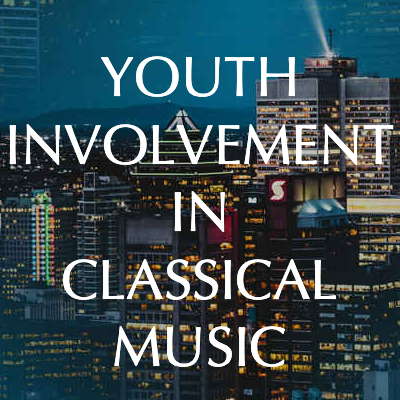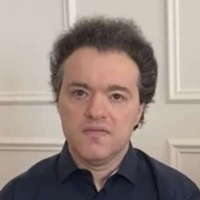- note 1 music gmbh
- Amadeus Press
- Edward Heath
- Area DiG
- Bryan Ijames
- Yekaterina Lebedeva
- St Nazaire
- Eric Whitacre
 VIDEO PODCAST: John Dante Prevedini leads a discussion about Youth Involvement in Classical Music - this specially extended illustrated feature includes contributions from Christopher Morley, Gerald Fenech, Halida Dinova, Patricia Spencer and Roderic Dunnett.
VIDEO PODCAST: John Dante Prevedini leads a discussion about Youth Involvement in Classical Music - this specially extended illustrated feature includes contributions from Christopher Morley, Gerald Fenech, Halida Dinova, Patricia Spencer and Roderic Dunnett.
 LISTENING TO TCHAIKOVSKY: Béla Hartmann uses his knowledge of Eastern Europe to argue against the banning of all Russian culture following Vladimir Putin's invasion of Ukraine.
LISTENING TO TCHAIKOVSKY: Béla Hartmann uses his knowledge of Eastern Europe to argue against the banning of all Russian culture following Vladimir Putin's invasion of Ukraine.
MOVEMENT IN MUSIC

TEUN VAN DE STEEG replies to Keith Bramich
Thank you Keith for your response to my article. First of all, I respect the remarks you made. You mentioned several aspects of musical performance. My subject concerns only the movement in music.
As a professional musician, I make music with all my heart, therefore considering that the making of music is a matter of musical feeling. That feeling cannot be determined by any musical law or calculation. I respect therefore the inner emotion of the performer who chooses his/her own attitude to the music. It seems to be true that: 'it's normally the performer's responsibility to choose and set the basic tempo, and this can (and usually does) have an enormous effect on the performance' (quote). But is it the performer's interpretation? I have discovered during my investigation that interpretations are very dependent of their own usage in music. People create their own customs so there is always a tremendous uncertainty about the right way to interpret, especially with pupils and students.
You mentioned a quote of mine: 'Movement in music has nothing to do with feeling but simply an understanding of physics'.
I realise that this opinion sounds quite odd for every musician. Even for myself, it seems to be a strange statement. When I tried to understand the movement in music I saw a certain misunderstanding. The presence of emotion in music is undeniably true, but I could not sincerely link the emotion to the movement. Of course, when I play a piano piece called 'Driving down the mountain' I can choose to use a fast tempo, but that is not what I mean. I try to understand the link between emotion, feeling and movement in the music.
When a pianist is playing the famous Waltzes of Fryderyck Chopin, he makes small differences in speed. We notice little accelarations and decelerations. We experience these small differences as a gesture of musical behaviour. But can these differences in movement be connected with emotion or feeling? What could this connection be? For instance, the pianist can think of joy, sadness, love, beauty and even the loss of a beloved person. But will this effect his movement concerning accelerations and decelerations? I don't think so. I think that the performance will still stay the same, independent of any emotion whatsoever. Do not misunderstand me, I do not deny emotion or feeling in music. On the contrary, I only claim that a presumed connection between musical feeling and movement in music is false.
When I was sure about that, I felt this to be a huge oversight in music. The question was: When feeling in principle has nothing to do with the movement in music, what phenomenon are we faced with? From this point on, I was driven into the field of physics. Could I find the solution I was looking for in this area? You have read my opinion about this.
The following case seems very unrealistic. I suggest to you that of all possible performances from the same piece of music, there can only be one perfect performance. This is very contradictory. As musicians we like several perfect performances of one piece. But from that moment on, we will reluctantly admit that musical movement is a matter of physics, we will accept that there can only be one perfect performance. Just like we can calculate the speed of moving cars, we can calculate the speed of 'moving' music pieces. From that moment on when we try to understand this option, I think, we can better become 'occupants' of the musical movement.
Netherlands


